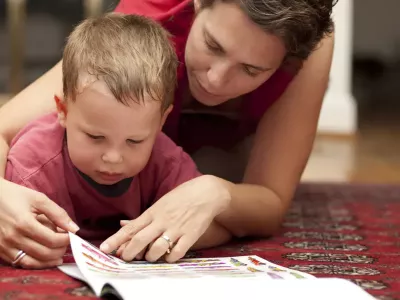Learning a new language?! (It's not quite that hard)

In a previous blog I talked about the challenges some parents experience in adjusting to a sudden apparent language deficit on the part of their teenager. The focus there was on how to get past the ‘grunt’ and how to help teenagers develop a flexible, effective communication system that will work in different settings. This time I want to focus more on the language that parents use when talking to or around teenagers.
“Hasn’t he grown?”
It sometimes takes a visit from a long-lost relative or friend to alert us to the fact that our children actually aren’t children any more. It’s a little like the story about the frog in the beaker of water that is being heated up very gradually. Each slowly increasing 1 degree rise is hardly noticed, but the frog eventually finds itself in very hot water! As our children change slowly over the years it is sometimes easy to overlook the fact that they are now almost adults.
This is probably why, as many parents of teenagers tell me “I suddenly realised I was still talking to her as if she was 5 years old”. As parents, we may be able to get away with this for longer than what's ideal, but eventually we need to learn a new language when talking to teenagers. Old habits die hard and it takes some effort to do this.
Listen to yourself
One of the first things to do is to monitor your conversations. After talking to your teenager, take a few moments to reflect on your tone of voice, the words used, and the way you were positioned. Then ask yourself “If I was talking to a friend or a colleague at work, what would have been different?”
Adult-to-(almost) adult conversation is subtly different from adult-to-child in lots of ways. There are issues of mutual respect, politeness and timing that often determine how or when we will raise an issue for discussion.
There is often a positive opening, perhaps a sharing of some recent event of interest, before more serious or pressing issues are raised. But these are often missing from our conversations with children as they start to emerge into adulthood. Day-to-day pressures, familiarity and proximity sometimes mean we take short-cuts and forget to try to model talking to them like we would a visiting adult.
When my son was a teenager, I had a conversation with him about there being three different types of people who might be staying under our roof:
- Visiting friends, who were not expected to participate in daily chores, but who might do so if they chose;
- Lodgers, who were paying to stay and so were expected to make only minimal contributions such as returning used crockery and cutlery; and
- Family members, who were expected to contribute to the daily running of the home.
I then asked him which group he thought he should be considered part of, as a way of leading to a calm discussion about him making more of a contribution.
This is an example of an adult-like conversation, raising important issues without lecturing or becoming angry. It also means acknowledging the teenager's ability to think through an issue with more insight than they could when they were younger.
When you're trying out this shift in focus in talking with your teenager, there are three key points to remember:
- Be polite.
- Be respectful.
- And above all, be patient.
Remember, while you've been a teenager, your teenager has never been an adult. So as difficult as this change is for you, it's more difficult for them. Taking the time to make conversation with your teenager does pay off in the long term. Or to put it another way, as you sow, so shall you reap!

